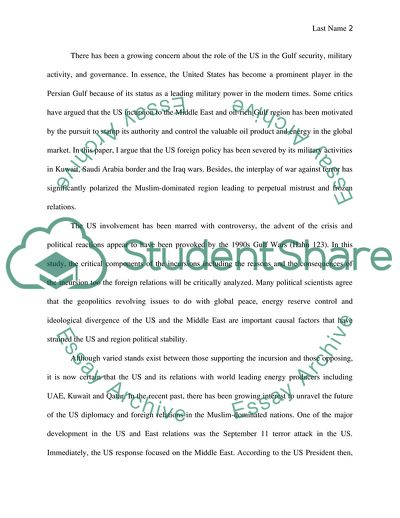Cite this document
(The Reasons for the Strained US Foreign relations in the Gulf Region Coursework Example | Topics and Well Written Essays - 2000 words, n.d.)
The Reasons for the Strained US Foreign relations in the Gulf Region Coursework Example | Topics and Well Written Essays - 2000 words. https://studentshare.org/politics/1854584-middle-east
The Reasons for the Strained US Foreign relations in the Gulf Region Coursework Example | Topics and Well Written Essays - 2000 words. https://studentshare.org/politics/1854584-middle-east
(The Reasons for the Strained US Foreign Relations in the Gulf Region Coursework Example | Topics and Well Written Essays - 2000 Words)
The Reasons for the Strained US Foreign Relations in the Gulf Region Coursework Example | Topics and Well Written Essays - 2000 Words. https://studentshare.org/politics/1854584-middle-east.
The Reasons for the Strained US Foreign Relations in the Gulf Region Coursework Example | Topics and Well Written Essays - 2000 Words. https://studentshare.org/politics/1854584-middle-east.
“The Reasons for the Strained US Foreign Relations in the Gulf Region Coursework Example | Topics and Well Written Essays - 2000 Words”. https://studentshare.org/politics/1854584-middle-east.


